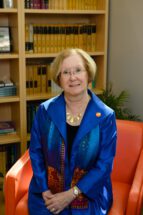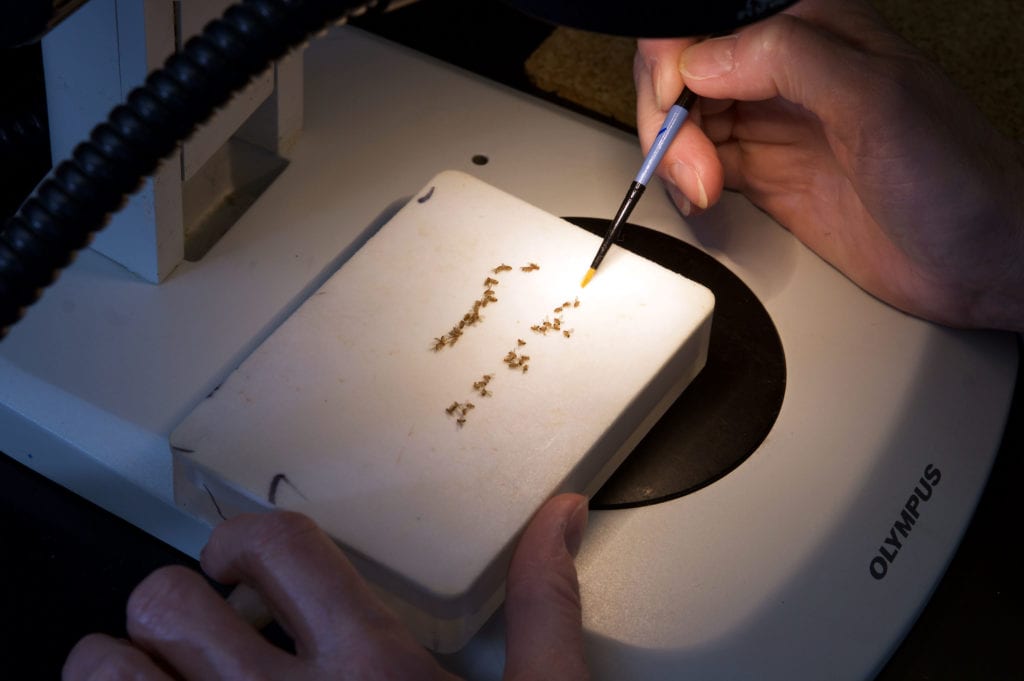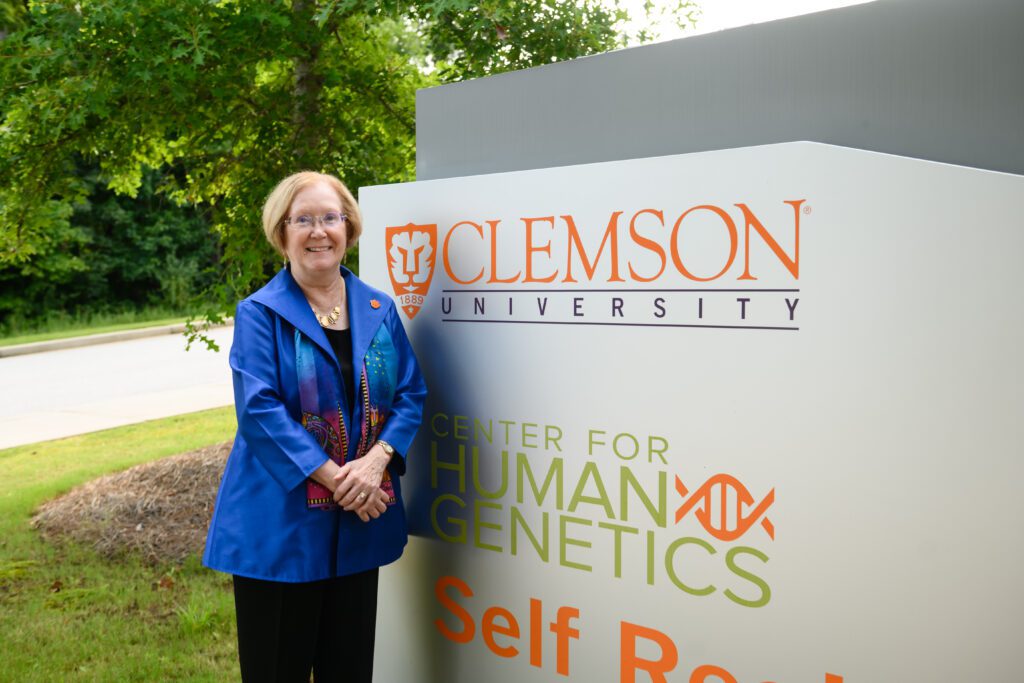Clemson Professor Trudy Mackay has been elected to the National School of Medicine
Trudy Mackay has been elected as Clemson University’s first member of the prestigious National Academy of Medicine, one of the highest honors in the field of health and medicine.
The three schools make up the National Academies of Science, Engineering and Medicine – and Mackay is now part of two of them, having been elected to the National Academy of Sciences in 2010.
“Trudy Mackay is a world-renowned genetics researcher. His election to the National Academy of Medicine is a historic and exciting day for Clemson University,” said President Jim Clements. “As Clemson’s first member of the National Academy of Sciences and now our first member of the National Academy of Medicine, Trudy continues to raise the University’s research profile to new heights. I am delighted that Trudy He has received such a great honor, and I am excited to see how his research changes and positively impacts the lives of others for generations to come.”


Director of Clemson University’s Center for Human Genetics, Mackay, has been named one of the world’s leading geneticists for pioneering studies on the genetic architecture of traits. complexity and the discovery of the principles of many genes with wide medical applications.
Mackay is one of 100 new members elected on Monday by current NAM members. Selection to the School recognizes individuals who have made significant contributions to the development of medical science, health care and public health.
“I’m very proud that the National Institute of Medicine recognizes the importance of my anatomical work on fruit flies, which has the potential to impact human health,” Mackay said.
With Mackay’s election, there are now four NAM members currently serving at South Carolina universities – two at the Medical University of South Carolina and one at the University of South Carolina’s Arnold School of Public Health. Mackay is the only person nominated for more than one Academy.
“Dr. Mackay is a pioneer in human genetics, and this remarkable honor is a further recognition of Clemson’s excellence in improving lives through research,” said Cynthia Young, dean of Clemson’s College of Science. “Clemson continues to accelerate its vision of precision medicine – one that integrates a person’s genetics, environment and lifestyle to lead to better health.”


Amazing research
Mackay’s empirical research uses the common fruit fly Drosophila discovering the genetic roots of complex traits – traits influenced by multiple genes – that are important to human health.
Because about 70 percent of the genomes of common kitchen bugs are human, Mackay is studying them to answer questions that have puzzled scientists for decades — why while some people who use drugs or drink alcohol become addicted while others do not. Or why some people live longer than others. Or why a genetic disease affects some family members severely but causes only mild symptoms in others.
“The whole point of genetic medicine is that once you identify the genes involved, you understand the mechanisms and networks, or the context in which the genes are involved, which often leads to drugs. which can lead to that death,” he said. “My work has long been trying to identify genes and understand those networks.”
Mackay conducted the first studies of genotype-phenotype association in flies, looking at the relationship between genes and their observable characteristics. The task proved to be more complex than anyone realized.
He created the Drosophila Genetic Reference Panel, an important tool used by researchers from all over the world. The panel includes more than 1,000 fly lines with fully sequenced genomes.
Advances in human health
Mackay said model organisms are still important in human disease research.
“We can only go so far with human research. We can make predictions. We can make a sequence. But the only experiments we can do are with human-derived cells and possibly organoids (three-dimensional cultures of organs grown in the laboratory from stem cells),” he said. I think that a deeper understanding of the biology and physiology of disease will always come from the use of organisms, perhaps not just one.”
Mackay sees a paradigm where researchers will develop a human problem and turn to flies as a genetic model. Now, once you’ve analyzed the relevant species and genes in flies, move on to other model organisms like mice and zebras, or even rats, to get more information before closing the loop by going back to people.
“I see it as more of a life cycle than when you’re working with people or fruit flies or mice,” he said. “I think the more teams do that, the faster we’ll move forward.”
Mackay, Clemson’s Family Chair of Human Genetics, said the NAM honor will enhance Clemson’s development of precision medicine.


The latest of many titles
His NAM selection is the latest of many honors in Mackay’s career.
Last month, he was named an Honorary Fellow of the International Engineering and Technology Institute (IETI), an international organization dedicated to promoting research and collaboration across engineering, technology and science-related fields. .
In 2021, he was elected to the American Philosophical Society, the oldest learned society in the United States, founded by Benjamin Franklin in 1743. Mackay is the first professor in the state of South Carolina and Clemson to become a member.
Mackay is the recipient of Trinity College’s Dawson Prize in Genetics, awarded to internationally outstanding geneticists. He is also a member of the American Association for the Advancement of Science, the American Academy of Arts and Sciences and the Royal Society of London. Mackay received the 2016 Wolf of Agriculture Award.
Get in touch and we’ll connect you with an author or other expert.
Or email us at news@clemson.edu
#Clemson #Professor #Trudy #Mackay #elected #National #School #Medicine